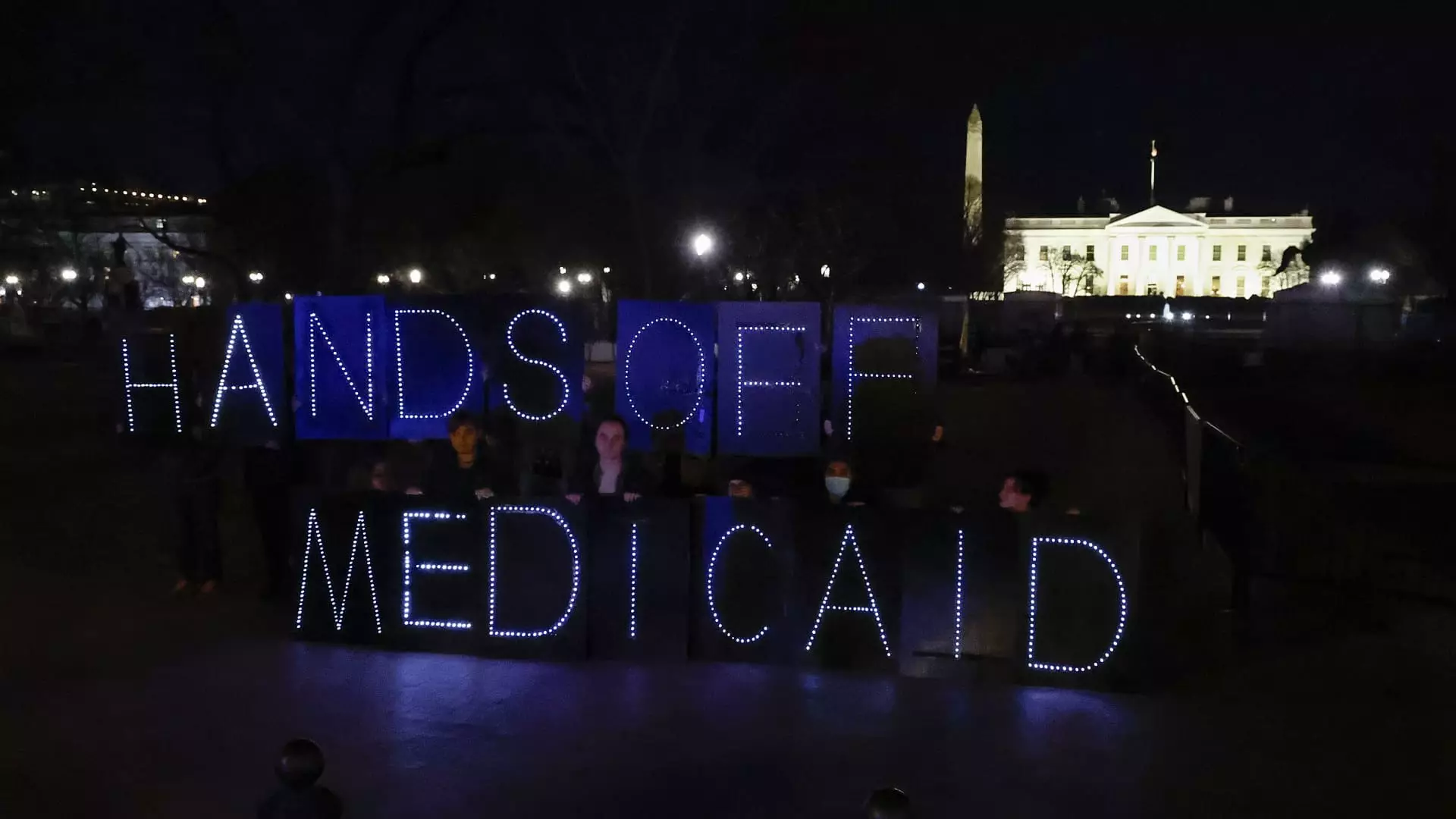Recent proposals put forth by House Republicans signal a potential crisis for millions of Americans reliant on Medicaid, the program providing essential medical services for individuals with limited financial means. The Congressional Budget Office (CBO) has warned that the GOP’s ambitious budget goals, amounting to an unprecedented $880 billion in cuts, hinge significantly on reducing Medicaid spending. This fiscal strategy appears set to sacrifice those most vulnerable in our society at the altar of budgetary constraints, leaving many wondering: Is this really the direction our healthcare system should be heading?
Amidst the political squabbles and relentless budget debates, the rhetoric surrounding Medicaid has increasingly morphed into a talking point for political agendas. The CBO has laid bare the numbers: implementing work requirements, which might obligate recipients to demonstrate consistent employment—around 80 hours per month—could feasibly save the government $109 billion over a decade. While such savings come with the seductive allure of fiscal responsibility, the harsh reality is that these requirements threaten the healthcare coverage of 36 million Medicaid beneficiaries, representing nearly half of all enrollees.
Misguided Morality: Work Requirements and Structural Inequality
The introduction of work requirements is not only a misguided approach to social policy but also a reflection of a troubling ideological divide between American and European social democracies. Farah Khan of the Brookings Institute articulates a profound truth: our welfare system is often weaponized against the poor, framing poverty as a personal failing rather than a systemic issue. The imposition of work thresholds overlooks the myriad structural inequalities that contribute to financial instability, stigmatizing beneficiaries while failing to address the root causes of their situations.
The proposed work requirements carry an insidious undertone that insinuates a moral judgment against those who need assistance. When lawmakers suggest that individuals must “earn” their healthcare, they blatantly ignore the challenges many face in maintaining steady employment due to systemic injustices, such as economic disparity or discrimination. It symbolizes a troubling trend: an increase in red tape and bureaucratic hurdles that only further alienate those who rely on these critical safety nets.
Lessons from History: The Bitter Legacy of Work Requirements
Historical evidence lends credence to the concerns surrounding work requirements. States like Arkansas and New Hampshire have already experimented with such policies, leading to catastrophic outcomes for Medicaid enrollees. In Arkansas alone, a chilling statistic emerged: within seven months of implementing work requirements, roughly one in four of those subject to the rules lost their coverage, ultimately leading to the program’s suspension. New Hampshire’s attempt yielded similar dismal results, with two out of three individuals facing disenrollment after just two months.
These patterns reveal a shocking truth: work requirements do not bolster employment; rather, they create barriers that result in significant coverage loss. The added complication of navigating cumbersome administrative processes frequently leads to disenfranchisement for those who might be temporarily unemployed, unable to meet the rigid work expectations. Reports underscore that the vast majority of Medicaid enrollees—around 90%—are either already engaged in work or eligible for exemptions based on disabilities or caretaking responsibilities.
The Rhetoric of Responsibility: Disenfranchising the Most Vulnerable
Despite assertions that imposing work requirements would instill a sense of responsibility and encouragement toward self-sufficiency, studies suggest the opposite: they disproportionately harm those who are already engaged in the labor force while punishing the most vulnerable. The debate veers away from compassionate governance, leaning more towards an ideology geared at vilifying the needy.
Interestingly, research from the American Enterprise Institute highlights a sobering statistic: many working-age individuals on Medicaid often do not meet the imposed 80-hour threshold. If work requirements are enacted, countless individuals who are struggling to find stable employment or facing significant barriers will be unjustly cast aside from the healthcare coverage they so desperately need. This harsh reality throws into stark relief the ethical implications of insisting on such requirements: who do we choose to leave behind?
A Call for Compassion Over Consequences
The implications of work requirements extend far beyond monetary savings. They embody a societal choice—a choosing to prioritize budgetary goals over human lives. Policymakers must weigh the moral responsibility of ensuring access to necessary healthcare against the backdrop of financial imperatives. Such decisions will shape not only the trajectory of individual lives but also the values that define our society. As we stand on the brink of potentially devastating cuts, it is imperative to advocate for compassion, empathy, and equity above the relentless pursuit of a balanced budget.

